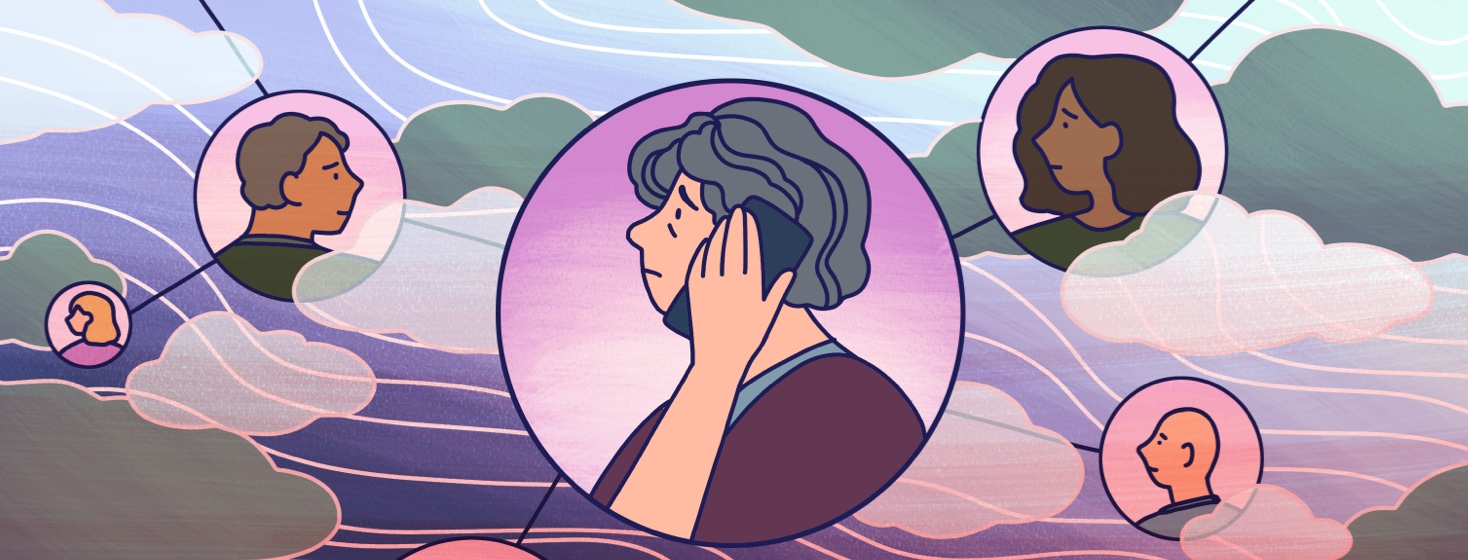Family Ties: Understanding Family Dynamics
Unconditional love is something that most people want to believe exists, especially when facing a chronic medical condition like heart failure. Why? Ideally, unconditional mental, emotional, and/or physical support comes with unconditional love. Thanks to various cultural beliefs and ideas pumped into our heads by the media, families are often the first place people turn to when seeking unconditional love. But what is a family? Families usually fall into one of two categories - the one you're born into and the one you choose. Family ties not only differ between the types of family, but they also differ within each family type.
Family ties in a heart failure journey
Biological families
We all have a biological family. Families, much like the people in them, come in various sizes and types. The complexity of biological family structures and why or how they are formed leads to differences in biological family ties. This poses challenges when facing a serious medical diagnosis.
Some family members instantly rise to the challenge. They travel from near or far to be there during your time of need. Other times, unfortunately, some are "no-shows." Think of a time when you believed someone in your family would help, but they did not. Wasn't it upsetting? Stereotypes and other beliefs surrounding family expectations often cause frustration when not met. In fact, these "failures" can be the most painful part of the healthcare journey. Sometimes, a person feels abandoned, betrayed, and confused. Fortunately, another type of family can "step in the gap" when this happens - the "chosen ones."
The chosen ones
"Chosen ones" are families created from emotional ties that bind you and another person. For some, it's a spouse or partner. For others, the "chosen ones" form from friendships developed over a lifetime. They can even come from support groups like this one. The catch is that these "family" members are either in your life for a reason, a season, or a lifetime. This is where different family ties arise.
Lifetime members are in it for the long haul. When the member is in it for a reason, their support tends to be short-lived, if at all. Seasonal family members may be around for a few years to decades. But, even these fade away at some point. When this happens, it tends to be very unexpected. Because they were around so long, these "family" members almost feel "biological." Therefore, the most painful experiences with this "family" usually come from the seasonal members. The good thing is that when one member leaves (for whatever reason), YOU get to choose who replaces them.
Get what you need
No matter the type, families are imperfect. Why? Every member is human! Therefore, you may have to depend on different types of family members at different times. The Rolling Stones said it best, "You can't always get what you want. But, if you try sometimes, well, you just might find, you get what you need."
This is true of families, too. There are plenty of reasons that explain why some people "show up" while others don't. Do not allow yourself to get stressed trying to figure it out. Instead, redirect your energy. Focus on what you have. Figure out what you need. Then, determine the best combination of family members, biological and/or chosen, to help you meet those needs. Everyone cannot be everything to everybody, but there is always someone somewhere who can be something important to you. Who knows. They might be right here "under your nose."
Do you have a heart failure story? Click the button below to share with our community!

Join the conversation